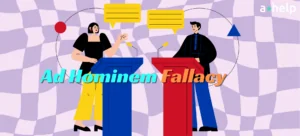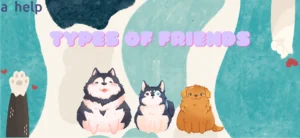Have you ever paused mid-sentence, pen hovering over the page or fingers poised above the keyboard, not knowing whether to write “idea” or “ideal”? Sure, these words sound very similar, yet they have two absolutely different meanings. The key to distinguishing idea vs ideal lies in their definition. “Idea” refers to a thought or concept that forms in the mind, something abstract yet powerful. On the other hand, “ideal” represents a standard of perfection, a benchmark we aspire to achieve. If you want to never mix up these words ever again, then keep reading this guide.

✅ AI Essay Writer ✅ AI Detector ✅ Plagchecker ✅ Paraphraser
✅ Summarizer ✅ Citation Generator
Definitions Of Idea And Ideal
As we have established, understanding the terms “idea” and “ideal” is the main aspect to help you remember their nuances and differences. The origin, development, and contemporary usage of these words reveal their distinctive meanings and contexts.
The word “idea” represents the content of cognition or the primary subject of one’s thoughts.
When we talk about an “idea,” we’re really talking about all the thoughts, opinions, or plans that pop into your head. The word “idea” actually comes from some ancient Greek words “idein” (to see) and “eidos” (image). Historically linked to Plato, it referred to non-material perfect ideas or images. Today, it broadly signifies a thought or concept.
Today, when we say “idea,” we’re talking about any thought or concept that comes to mind. For example, if we ask, “Do you have any idea how long the trip will take?” we don’t expect you to know the exact time, just your best guess or estimate. And in music, when someone talks about an “idea,” they mean the main melody or theme of a song—the part that might stick in your head.
“Ideal” is associated with perfection or the ultimate goal one strives to achieve. It traces back to the Latin “ideālis” and French “idéal.”
Now, moving on to “ideal,” this word is all about perfection. When we use “ideal,” we’re talking about the absolute best scenario or something that’s perfect. Like if someone says, “The ideal color theme for your wedding is mustard and gray,” they mean that in their view, it’s the perfect choice. “Ideal” can also mean something that’s so perfect it’s not even real—it’s just in your imagination, something you dream about but might never actually have.
Idea and Ideal in Plato
Plato’s philosophy hinges on understanding the Forms or “Ideas.” He conceptualized a dual reality: the ideal (perfect existence) and the phenomena (the flawed physical world). According to his theory, concepts like “man” have their independent, objective existence outside the human mind. This idea goes beyond the physical features we usually associate with (physical) objects.
Plato’s idea of a table illustrates this concept. We may describe a table by its physical attributes like the number of legs, but there exists an “ideal” table in the metaphysical realm of ideas. This ideal is not just a mental construct but a real entity in different areas. Plato believed that human cognition and understanding are always approximations of these true, eternal ideas. To make it easier for you to understand Plato, let’s consider the following examples:
| Physical Object | Plato’s Ideal Form | Explanation |
|---|---|---|
| Chair | Ideal Chair | In the metaphysical realm, there exists a perfect form of a chair, embodying the essence of ‘chair-ness’, regardless of the physical variations found in the world. |
| Justice | Ideal Justice | Plato envisioned an ideal form of justice that transcends human legal systems, representing a pure and absolute concept of justice. |
| Love | Platonic Love | This refers to a non-physical, spiritual connection, representing an ideal form of love that surpasses physical relationships. |
| Beauty | Ideal Beauty | Beyond subjective perceptions of beauty, Plato believed in an objective, ideal form of beauty that is perfect and unchanging. |
| Circle | Ideal Circle | All physical circles are imperfect approximations of the ideal circle, which exists perfectly in the realm of ideas. |
| Courage | Ideal Courage | Plato’s ideal courage is a perfect form, embodying the essence of bravery, untainted by fear or recklessness. |
| Human | Ideal Human | Plato theorized an ideal form of a human, representing the perfect essence of humanity, beyond physical and moral imperfections. |
| Government | Ideal Government | An ideal government in Plato’s view is a perfect model of governance, which real-world systems can only strive to emulate. |
| Animal | Ideal Animal | Each species of animal has an ideal form, representing the perfect essence of that species in the realm of ideas. |
| Virtue | Ideal Virtue | Virtues like wisdom, temperance, and justice have ideal forms, which are pure and unblemished by human interpretation or application. |
These examples show how Plato’s theory of ideas forms the basis of our understanding of the metaphysical world, influencing various aspects of philosophy and even religious thought.
The Bottom Line
In conclusion, understanding “idea” and “ideal” illuminates their distinct roles in both everyday language and philosophical thought. While ‘idea’ captures the essence of thoughts and concepts, ‘ideal’ embodies perfection and aspirational standards. Plato’s philosophy drives this distinction even further, showing how these concepts exist both in our minds and in an abstract realm of perfect forms.
FAQ
Follow us on Reddit for more insights and updates.





Comments (0)
Welcome to A*Help comments!
We’re all about debate and discussion at A*Help.
We value the diverse opinions of users, so you may find points of view that you don’t agree with. And that’s cool. However, there are certain things we’re not OK with: attempts to manipulate our data in any way, for example, or the posting of discriminative, offensive, hateful, or disparaging material.